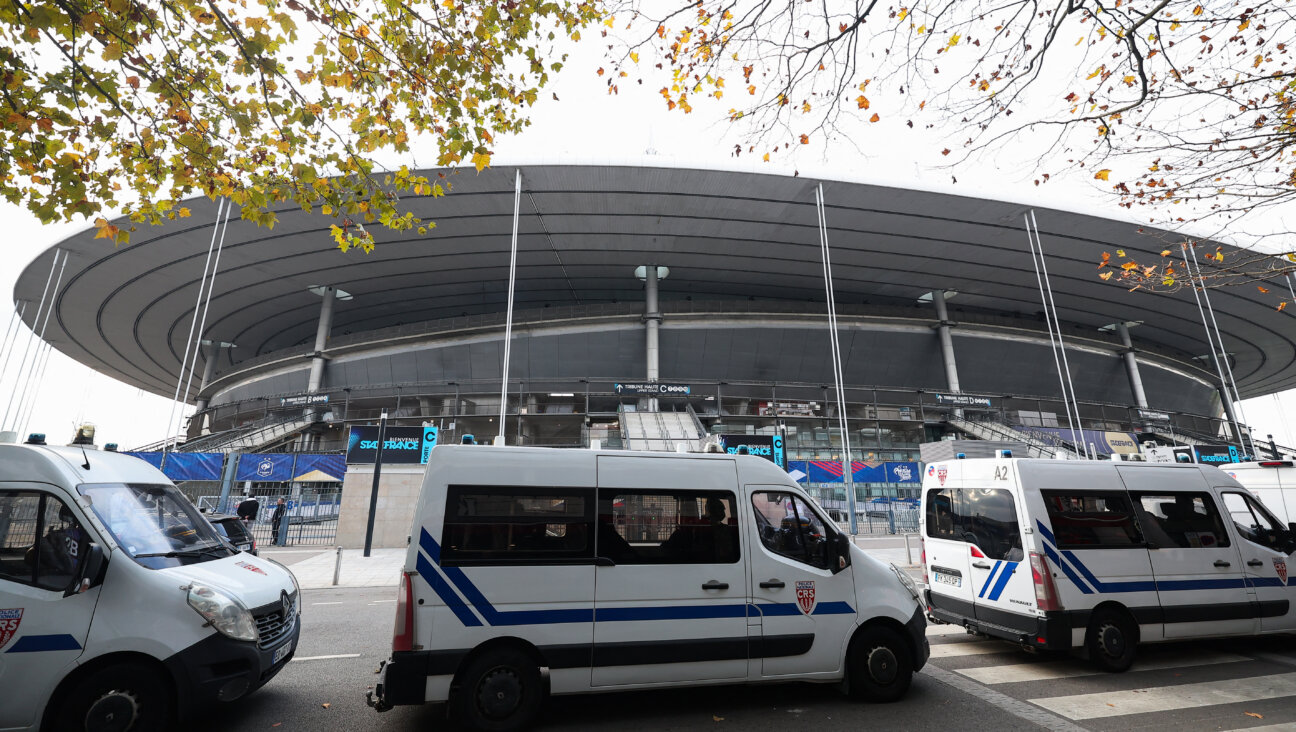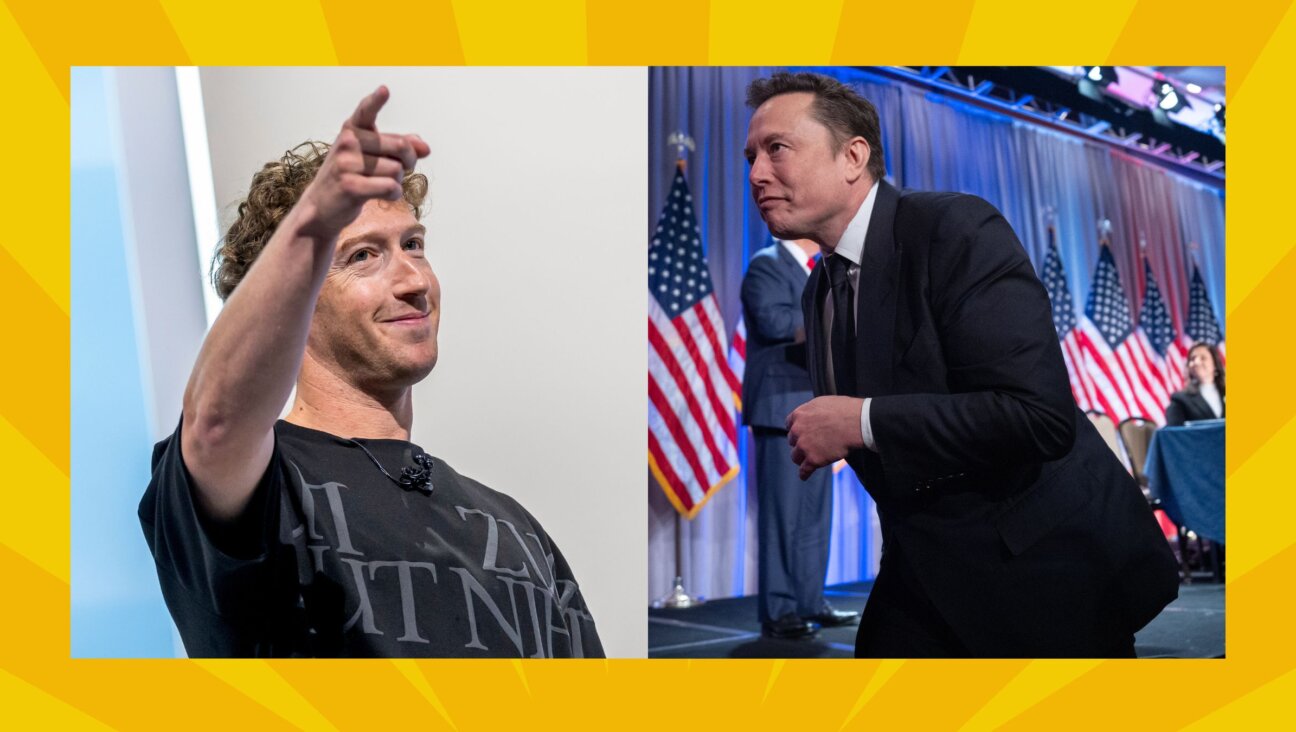Our Great Moral Failure in Syria

Image by Getty Images
Two thousand and sixteen was the year that America lost all claim to moral leadership, the year when apathy, prejudice and self-absorption finally destroyed our ability to act wisely in the world. The siege of Aleppo signified the end.
For five years until now, we have watched as Syria descended into a civil war that has claimed 400,000 lives and created nearly 11 million refugees. We watched as a once-proud civilization destroyed itself, destabilizing a dangerous region; watched as boatload after boatload of the desperate washed up on Europe’s shores, as all the global mechanisms meant to prevent this kind of humanitarian disaster proved to be manifestly incapable of doing much of anything.
During those years, President Obama serially failed to intervene — tarnishing his otherwise accomplished tenure in the White House.
The U.S. Congress failed to support the administration, proving that its infantile penchant for political gridlock also has a real human cost.
We, the American people, failed — and continue to fail — to demand action, inexcusably turning our backs on those in need, throwing away our birthright for the mirage of nativist safety.
The Jewish community failed to preach from the pulpits and organize as we did for Darfur and for Soviet Jews, so obsessed with our own narrow concerns — Israel, intermarriage, whatever — that we lost our prophetic voice.
The media, my profession, failed. Too swept up in the click fever of an embattled business followed by the vaudeville show masquerading as a presidential campaign, we failed to present this crisis with the depth and consistency it demanded.
I, personally, failed to write enough, publish enough, learn enough, think enough and care enough to make even a smidgen of difference.
On December 13, Samantha Power, who as the U.S. ambassador to the United Nations has argued for years for more forceful intervention, gave an impassioned speech, blaming the Syrian government of Bashar al-Assad and its allies Russia and Iran for perpetuating “a meltdown of humanity” in their conquest of Aleppo. Once Syria’s most populated city, a center of civilization and culture for centuries, it is now reduced to carnage, misery and brutal death.
“Aleppo will join the ranks of those events in world history that define modern evil, that stain our conscience decades later,” she warned the U.N. Security Council. “Are you truly incapable of shame? Is there literally nothing that can shame you? Is there no act of barbarism against civilians, no execution of a child that gets under your skin?”
She could have been talking to us.
True: Assad bears the major responsibility for murdering his people and decimating his country, while Russia and Iran diabolically helped — we can excuse ourselves of that. We in America did not create this civil war, and there was no guarantee that we could have stopped it.
They are the ones who caused this shameful evil.
But we are just a sorrowful step behind.
Because why have a United Nations if not to fulfill its essential function, the “responsibility to protect”? Why have a United States that claims to be the leader of the free world if we don’t liberate those imprisoned by war and aid those who are fleeing it?
Why be Jews if we don’t speak out, forcefully and repeatedly, against the worst humanitarian crisis since our own in World War II?
Obama made a terrible mistake in the summer of 2013, when after declaring that Assad had crossed a “red line” by using chemical weapons against his own people, the president failed to follow up with decisive, military punishment. I’ve read his pragmatic justifications for inaction, and tried to understand the reasoning of a man I otherwise admire. I recognize that Congress was complicit in this decision not to follow through militarily (as was the British Parliament.)
Nonetheless, Obama could have done more, and, as the Forward wrote at the time, he should have done more. His curious detachment from this manmade tragedy is a blot on his character, and ours.
Even as I apportion blame broadly, I freely acknowledge that there have been people and organizations that have stepped up to do the right thing, particularly in the Jewish community, to help refugees and to lobby for more consequential political and military responses. I don’t mean to disparage those efforts.
But sadly, they did not come to define our response. Even the State of Israel, which arguably has much more to lose by becoming embroiled in a conflict on its borders, has strained to take care of the wounded in an admirable way that ought to add to our shame.
So what happened, America? There was no shortage of tragic stories to humanize the conflict. The image of Aylan Kurdi, the toddler whose lifeless body was swept up on a beach in Turkey, momentarily caught the world’s sympathy. So did the image of Omran Daqneesh, whose bloodied and burned body was pulled from the rubble in Aleppo.
And the painful tweets from 7-year-old Bana al-Abed in that war-torn city went viral for a time.
But somehow, we continually failed to act. What happened?
I can attribute this to only two core reasons: The conflict is messy. And it’s Muslim.
So simplistic is our perspective on foreign affairs, and so short is our attention span, that unless there is an absolute good guy and bad guy, we turn the channel. I fear that this American tendency to view global complexity through the lens of an old TV Western will grow only more dangerous under the next administration.
Yes, Assad was a bad guy. And he still is. But so are some of the rebels who have fought him nearly to a standstill — particularly, of course, the Islamic State group. Had the United States and other powers taken more forceful action in the early stages of this conflict, when a viable opposition to Assad was taking shape, it’s possible that the resulting violence could have been stopped or abated.
We can’t turn back the clock militarily anymore, but we can address the devastating humanitarian crisis with more commitment and urgency. The United States has delivered only 52% of the humanitarian aid it was supposed to give in 2016, and the year is days away from ending.
We accepted slightly more than 13,000 Syrian refugees this year. By contrast, during much the same time period, Canada welcomed more than 37,000. In 2015, Germany welcomed 1 million.
Since nearly all of those refugees are Muslims, it’s impossible to deny that fear and prejudice are what drive our tepid response. As long as Muslims are murdering Muslims over there, we don’t really need to deal with it here.
We Americans are good at this sort of compartmentalization. Most white Americans pay little attention to black-on-black violence, conveniently ignoring the way systemic disinvestment and racism have created the conditions under which this kind of violence occurs.
We view violence in a Muslim context similarly. Only when it invades our territory does it awaken our sympathy — but that’s because the victims are perceived to be us, and not them.
This lack of moral imagination and empathy is, besides the lives lost and destroyed, the greatest casualty of our silence on Syria. It will cripple us on the world stage for years to come. It puts the lie to our so-called national values.
“What did you do about Syria,” future generations may ask, assuming that they are raised to know enough to ask.
“Not much,” we’ll have to reply.
What do we stand for if we don’t stand for this?
Contact Jane Eisner at [email protected]
A message from our CEO & publisher Rachel Fishman Feddersen

I hope you appreciated this article. Before you go, I’d like to ask you to please support the Forward’s award-winning, nonprofit journalism during this critical time.
At a time when other newsrooms are closing or cutting back, the Forward has removed its paywall and invested additional resources to report on the ground from Israel and around the U.S. on the impact of the war, rising antisemitism and polarized discourse.
Readers like you make it all possible. Support our work by becoming a Forward Member and connect with our journalism and your community.
— Rachel Fishman Feddersen, Publisher and CEO
























